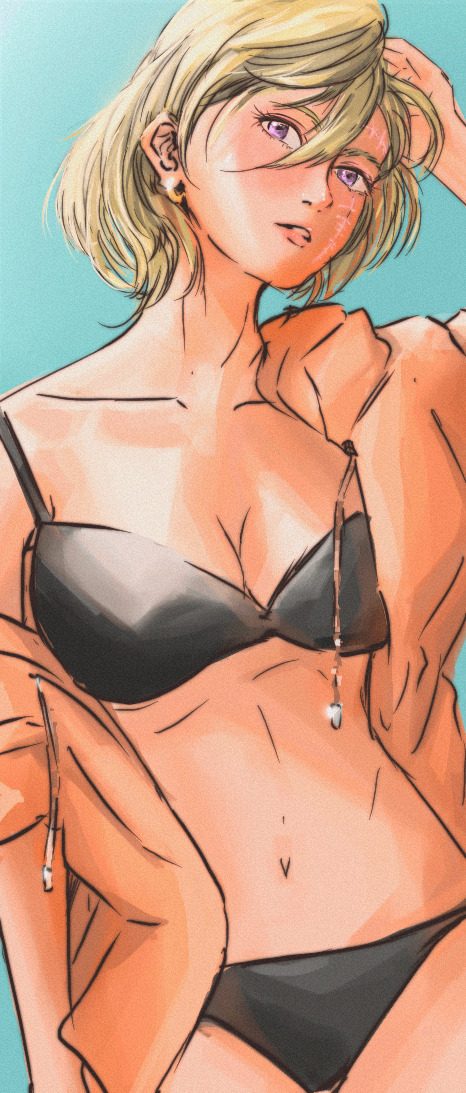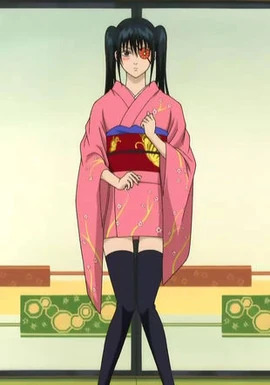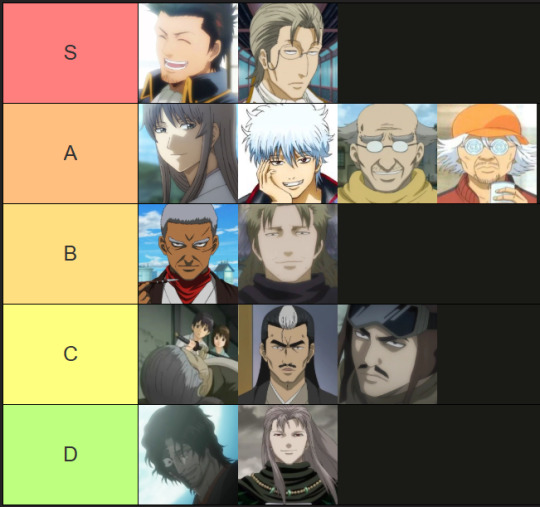Susie | She/her | 20+ | I'm constantly struggling between keeping a decent blog and shitposting. Please herpes me. Joui 4 enthusiast. I like to make gifsets and edits. I follow and reply as suchine-ubsty.
Don't wanna be here? Send us removal request.
Text

Soft..🍑
#Omg Takasugi on his tiptoes 🤭 and the way he looks tense in the first one#it's like he expected Gintoki to grab his ass lmao I love this!#Sakata Gintoki#Takasugi Shinsuke#gintaka#takagin#Fanart
126 notes
·
View notes
Photo

銀魂15年間 沢山の幸せをありがとう いつまでもずっと大好き
#it was all a play guys#look the 2 lead actors got flowers#for making such a good job#no one can tell me otherwise#Matako is just holding a prop
795 notes
·
View notes
Text
psychic: *reads my mind*
me: gintama was supposed to be a story for the common man, a small tale about a former war veteran/hero who started out with nothing, learned to love, and lost everything. gintoki was just a regular guy who didn’t need any big dreams or huge aspirations, he just wanted to learn to forgive himself for his past mistakes and live a good life, nothing big. the plot wasn’t really much of a plot at all, just showing how even the most broken person can become whole again by trusting himself and the people around him. gintama aims to show people how you don’t need your entire life planned out and have an overarching goal to work toward. gintoki and the rest of the characters show that it’s okay to live out one day at a time. take things slow, embrace your flaws and seek to become a better person one small step at a time. but now? the sensei who was a light in the lives of gintoki and his disciples, who helped them understand that it’s all right to not always know the answer, became an extravagant Main Villain that Gintoki the Main Protagonist is Destined to Defeat. the once ordinary child trying to live his life to the fullest became an object of karma. where is the natural, everyday gintoki, the one we all looked up to as a Protagonist and a Main Character precisely because he wasn’t? where is the boy thrown into war and suffering and now learning to heal himself with others, representing a journey so many depressed people have to face? why is the kid who wasn’t destined to become anything, who just wanted to live his life standing tall and proud, now suddenly a cheap plot twist used to emphasize the role of fate and clichéd Good vs. Evil drama? perhaps it is too soon to be disappointed abut this storyline yet, but when will gintama truly be the gintama we once loved again? when will we return to the hero who was extraordinary because he wasn’t, who represents the small things precious to us that we try to protect everyday, who tells us what it really means to be happy?
psychic: what the hell
807 notes
·
View notes
Text
As Gintoki would say: She’s got jugs! Giant jugs
Training how light works and got this!!!!
Tsuki on her summer clothes 🥰
I got a nice ref tho

54 notes
·
View notes
Text


The kawaiification of the art style (minus the toilet lol)
#Gintama#Yagyuu Kyuubei#Animecap#my post#that little neck supporting that huge head is impressive though
5 notes
·
View notes
Text
(A Totally Serious) Gintama Dads Tier List
Why does this series have so many dads help-

S
Kondo: He became the father of the Shinsengumi because of the way he leads and emotionally anchors the group, not just as a commander, but as someone who deeply cares for and nurtures them, often in spite of himself. Shinsengumi members have been willing to die for him time and time again, which shows how genuine their love is (despite his stalker tendencies and hairy ass).
Isaburo: Despite his outwardly stern demeanor, he understands Nobume's past traumas and helps her cope with them, while also educating her on the harsh realities they face. He named her after his deceased daughter and cared for her as such, even texting her frequently and buying her donuts.
A
Shouyo: He's a father figure for several characters in the series, demonstrating unwavering love and acceptance, and provided a supportive environment for them to grow. His memory and teachings remain a guiding force for his students. Reason for losing points: He left his kids concussed and dumb.
Gintoki: He consistently shows protectiveness towards Kagura and Shinpachi, often putting their safety and well-being above his own. He's playful with them, teaches them important life lessons, and accepts them unconditionally. Despite his flaws, Kagura and Shinpachi love him very much. Reason for losing points: Has several mental health issues and his feet stink.
Zenzou's dad: He became a father figure to many children as he taught ninja arts and played kick the can with them. Many of his students attended his funeral, showing how loved he was. Reason for losing points: Sold Zenzou's JUMP collection to buy p*rn.
Matsugorou: Also known as Musashi, he's Ikumatsu's dad. It's shown that despite their poverty they were very happy together, until he lost his memory trying to save a boy from drowning. He saves her daughter and reconnects with her. Reason for losing points: He wears a jacket and fundoshi.
B
Jirochou: He abandoned his daughter Pirako because he felt compelled to protect what his friend Tatsugorou left behind after he died. His subsequent actions reflect a desire for redemption and a willingness to spend more time with her. Reason for losing points: Was too chicken to have a threesome with Tatsugorou and Otose.
Abuto: He's not the stepdad, he's the dad that stepped up. Although he's not exactly a parental figure to Kamui, he has been by his side since he was a kid and cares about him a lot. Kamui was even shown to hesitate attacking him. Reason for losing points: He's losing his will to live.
C
Shimura Ken: Not much is known about him, only that he died leaving Tae and Shinpachi with a huge debt. Although he cannot be blamed for dying from an illness, he didn't take any measures to prevent his children from suffering because of him. Reason for losing points: His name is a parody of a comedy actor.
Koshinori: Since the heir of the Yagyuu clan had to be a man, instead of changing the rules, he forced Kyuubei to conform to that identity. He later decides to let her live as she sees fit. Reason for losing points: His height is 122 cm (4'0").
Umibouzu: He has a complex relationship with Kamui and Kagura. His absence leaves a void in their lives and creates feelings of abandonment, even if he'd reasons to do so. His two children ended up finding substitute father figures elsewhere. Reason for losing points: Stopped a 3 day fight to take a dump.
D aka Betrayed their students tier
Jiraia: He takes on the role of Tsukuyo's mentor and trainer, but his influence extended beyond that, manipulating her emotions and exploiting her vulnerabilities. Their relationship becomes increasingly abusive and toxic until she breaks free of it. Reason for losing points: Bad skincare habits.
Utsuro: Despite his mentorship role, he manipulates his students' emotions and desires for his own ends, creating emotional turmoil within them as they uncover his true intentions and the extent of his malevolence. Reason for losing points: His existence.
81 notes
·
View notes
Text
Gintoki as a “dirty” purifier? (Spoilers up through Battle of Rakuyo arc)
This isn’t too structured in my mind, so it will come out rambling, but I wanted to express it anyway. Feedback very welcome!
Spoilers up through Rakuyo arc, and I’ll edit the start of the post in case there are comments that go further. (I can’t be spoiled, myself, since I’ve completed the manga.)
Among many other themes and repeating patterns, I feel like we have several interrelated ones to do with purity, impurity, and connecting/comparing yourself to others:
Let’s start with Gintoki as a purifier, in spite of how often he is associated with impurities, in habits as well as in daily morals, neighbourhood, speech, and so on. (Of course this is mostly comical, but that doesn’t make it non-relevant.) The Benizakura arc talks about swordsmiths purifying their souls as well as their swords, and Gintoki becomes Tetsuko’s champion against Nizô who becomes less the wielder than the tool of the “impure” sword Benizakura. But it’s Nizô and the sword’s maker Tetsuya who are single-minded in their pursuit, “pure” in one sense of the word, while Gintoki explicitly celebrates the cares of ordinary life (telling Tetsuya, “You just didn’t want to bother”) and being his generally surface-dirty self in habits and speech as usual.
The Shinigami arc also speaks of purifying, but in terms of skilled executioners supposedly being able to purify the souls of those they’re beheading, in a way that shows how Asaemon and her adoptive father viewed those condemned men as human beings, wishing for them to be purified of their crimes at the point of death. Gintoki could have been one of those men, yet Yaemon Ikeda XIV helped him and other men he deemed innocent escape, which in the fullness of time obliges Gintoki to take up Asaemon’s cause no matter how much she insists she shouldn’t be saved. And I feel that it’s strongly implied, again, that Gintoki also becomes a purifying force in the process.
As mentioned above, the consistent association with Gintoki and impurities seems to contrast with this. But so does Gintoki’s repeated habit of equating himself with an opponent or someone he’s trying to help in a seemingly negative way that manages to be a kind of reaching out. “We’re both trash, you and I”, “It takes a coward to face another coward”, “A drunk is best dealt with by another drunk”, and so on. He’s in essence telling the other person, ‘Look, you’re just a shlub when all’s said and down, and so am I. Maybe we can co-operate or maybe I have to fight you to stop you, but at the end of the day we’re equals, I’m not any better than you. You’re not alone.’ In doing so he simultanously refuses to exalt the other when they behave inhumanely, yet also refuses to cut the other one off from a shared condition of sinfulness and, it’s implied, connection to humanity at large. (“Humanity” in the wider sense that also includes Amanto, except for those Amanto who cut themselves off from humanity contemptuously.)
But how does that square with Shoyo’s statement to Gintoki that “as a monster, you can’t cut down a monster’s sword”, and to “be stronger than me, use the sword of a human”? There the similarity is no longer seen as a benefit, but a hindrance. Yet who can be more sinful than a monster?
Is this apparent discrepancy meant to point to a difference in philosophy between Shoyo and Gintoki, implying that Gintoki’s stance is ultimately the better one?
Or is there no such discrepancy - because Gintoki’s position on all those occasions is meant to affirm humanity in himself and the other person? A flawed, sinful humanity, true, but that just makes it more believable and hence more credible. While being a monster means you’re set apart from other people, in fact you’re not even seen as truly a person. (Or you don’t see yourself as one.)
I don’t have a clear conclusion, I very much invite comments!
Also posted to Dreamwidth.
17 notes
·
View notes
Text


Gintoki and Tsukuyo in Gintama The Final Animation
71 notes
·
View notes
Text
uhhh massive gintama spoilers but i can’t stop thinking about how gintoki and takasugi are childhood friends/rivals turned worst enemies turned allies and how they share a tender reconciliation moment and takasugi fucking dies in gintokis arms. and gintokis cries having to kill him. god what the fuck. what the fuck else could you ever ask for in a relationship dynamic.
46 notes
·
View notes
Text
https://archiveofourown.org/works/50003938/chapters/171611020
Chapter 11: Learning to stay is the hardest and most beautiful choice
Takasugi confesses his romantic feelings through a kiss, leaving Gintoki confused and struggling with his own emotions about their relationship. He initially tries to avoid the conversation, but eventually opens up about his deep-seated fear of abandonment stemming from his childhood and his belief that he doesn’t deserve to be loved. Despite his insecurities, Gintoki ultimately chooses to stop running from his feelings and admits that he loves Takasugi and doesn’t want to lose him again, leading to them finally acknowledging their romantic connection.
Word count: ~8400
#Buckle up for some long-ass final notes featuring a Gintoki character analysis nobody asked for#(I just love him so much okay 🥹)#Gintama#Sakata Gintoki#Takasugi Shinsuke#gintaka#takagin#I can write#Fanfic#my fanfic#my post
2 notes
·
View notes
Text
Was really Takasugi a more dangerous terrorist than Katsura?
I was wondering:
In chapter 29 (ep. 17) we learn from Katsura that Takasugi is hated by the Bakufu more than Katsura is.

And in the same chapter/episode Hijikata says he is more dangerous than Katsura and the rest of the Jouishishi.

And we found that he has this reputation because he killed 10 Bakufu’s officials in a restaurant.

Knowing Shinsuke, it was a reckless act, a bloodbath. Anyway, in that occasion he killed ‘only’ ten people and all of them were part of the Shogunate. Surely there were civilians there (it was a restaurant, so other costumers and the staff), but they were not killed.
However, Takasugi went straight to the core: he wanted to destroy the Bakufu? He killed Bakufu’s officials. Simple and straightforward. Sure, he slaughtered them, but they were not civilians, There were not collateral victims. Also the other terroristic acts he did were focused on Bakufu’s arms and legs (Shinsengumi, Shinobi…) – or personal matters, but this is a whole different part of the story.
And yes, there was the Benizakura affair. I’d say that if he wanted to physically raze and set ablaze Edo, he could. Or at least bomb the city here and there. He had the military power to do so. We know he wanted by Tetsuko, but we don’t know how much her knowledge on the matter was deep, and I’m inclined to believe she interpreted, thus she’s not a reliable narrator of Takasugi’s plans with Benizakura. Indeed, Shinsuke told Murata he wanted to show the era of samurai and katana was not ended and, according to the Shinsengumi, he wanted to stage a coup d’etat.
On the other hand, Katsura was feared for the bomb attacks at Amanto Embassies.
Bombs are much more risky, moreover it is implied he used to bomb even during daytime. It was much more likely civilians were involved (human staff, passers-by…).
And before he bumped again into Gintoki and turning moderate, he wanted to bomb the Terminal. Yes, it was a symbol of the Bakufu, but there how many innocent, human, civil people would have died? Many, probably.
We know only a small part of the terroristic deeds both of Shinsuke and Katsura: we have do deal with a 10-year-gap, after all.
So I honestly think it’s important that Hijikata, thus someone who worked for the Bakufu, called Takasugi that.
Because on Bakufu’s view, it was Takasugi, who probably had killed an higher number of Shogunate officiers than Katsura, the most dangerous and the one to be hatred.
While Katsura was probably more a danger for… Like, everyone. Not that he wanted to kill civilians (he surely tried to avoid it), still he used to consider their casualties a necessary sacrifice.
Sure, Shinsuke too didn’t mind to kill civilians, but his style allowed him to kill exactly who he wanted to kill, while Katsura’s acts’ results were unknown until they were done.
44 notes
·
View notes
Text

Someone sent flowers to the girls, some lazy strawberry milk lover with a perm
64 notes
·
View notes
Text
hijikata and kondo are in love thanks for coming to my ted talk
182 notes
·
View notes
Text

317 notes
·
View notes
Photo





“Who are you calling a regular cabaret girl? Get on your knees! I am the Queen of the Kabuki District!”
545 notes
·
View notes

